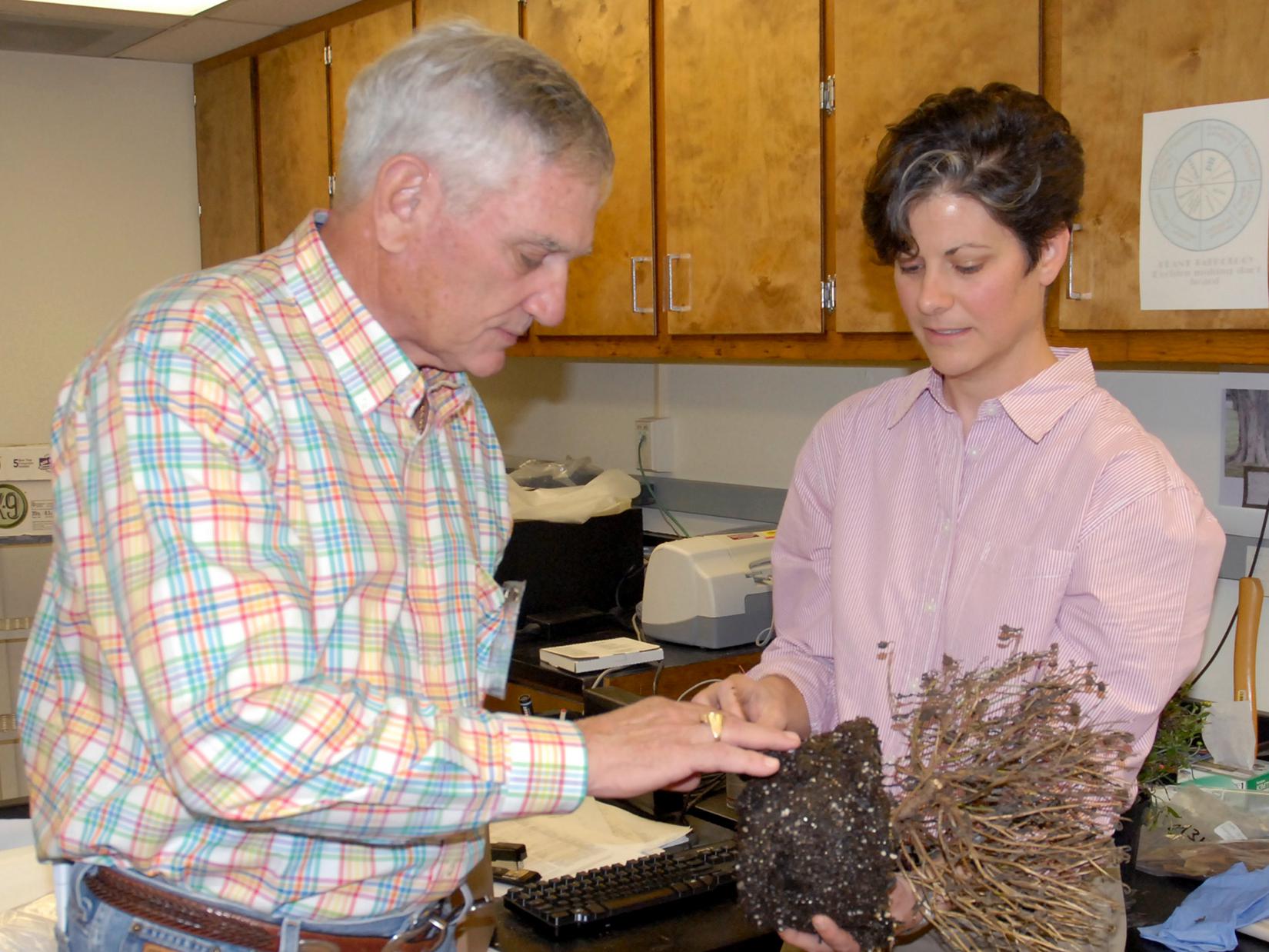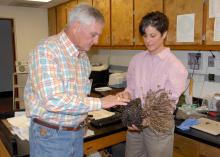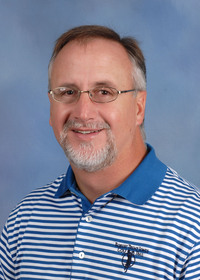Information Possibly Outdated
The information presented on this page was originally released on October 12, 2016. It may not be outdated, but please search our site for more current information. If you plan to quote or reference this information in a publication, please check with the Extension specialist or author before proceeding.
Master Gardeners extend knowledge to state's residents
TUPELO, Miss. -- For more than a quarter century, Mississippians with a love for horticulture have been helping to educate and serve their communities through a nationwide Extension Service program.
"Master Gardener volunteers help extend the educational arm of the university to the public by providing horticultural information based on university research and recommendations," said Lelia Kelly, a horticulturist with the Mississippi State University Extension Service. "The Master Gardener approach helps the local Extension office reach a broader audience than is possible with only one or two agents."
Kelly is serving as the program’s fourth state coordinator. She said John Davis, who was an MSU Extension associate horticulture specialist on the Gulf Coast from 1977 until his death in 1998, initiated the first pilot Master Gardener class in Mississippi in 1989. Davis was the unofficial coordinator during the early years of the state’s program.
Success from the pilot program on the Gulf Coast led to a statewide effort, beginning in the capital area.
Milo Burnham, who became the first official state coordinator in 1992, said there were many challenges in starting the program in Mississippi.
“Mississippi’s existing consumer horticulture programing was not compatible with the criteria spelled out for a Master Gardener Program,” he remembered. “It was obvious that considerable preparation would be necessary.
“John Davis took the bull by the horns and independently started a Master Gardener Program on the Gulf Coast,” Burnham said. “He worked hard to develop a training manual and was conducting volunteer training meetings early on. John actually sold me on the program.”
Rebecca Bates, Extension area horticulture agent, held the first official Master Gardener class for Hinds, Rankin and Madison county residents in 1992.
“When I was hired in 1989, one of my instructions was to start a Master Gardener Program,” Bates said. “We had several hundred apply for the first class, and we had to screen it down to 24 people.”
Bates described the Master Gardener volunteer program as a great way to gain horticultural expertise at a low cost, meet other avid gardeners, share gardening experiences, get connected to the community and belong to a well-respected and educational organization.
Jackson resident Nellie Neal, also known as Garden Mama, was in that first class shortly after she moved to the state. Today, she is a semiretired garden writer working on her 12th book, contributing to newspapers and magazines, and hosting “Weekend Gardening” on the SuperTalk Mississippi radio network.
In the early 1990s, Neal had a bachelor’s degree of science from Louisiana State University in English and horticulture.
“My husband and I arrived in Mississippi with two young children, and my career in horticulture was in a delay,” she said. “When I saw the program announcement in the Clarion-Ledger, I thought it would help me learn. Plus, I didn’t know any local gardeners yet.”
Neal said the education aspect was great, and participants all learned together.
“We formed friendships that continue to this day,” she said. “There is no question whether you are looking for information, comradery, networks or service opportunities, you are going to gain from the Master Gardener Program.”
Service to the community is a hallmark of Master Gardener groups, and Bates’ inaugural class in the metro area set the pace. They started a spring Yard and Garden Jamboree at the Mississippi Ag Museum, conducted a water garden demonstration in Crystal Springs, obtained an urban forestry grant in Madison County and started the “Mississippi Growing” newsletter.
Kelly said the annual volunteer hours statewide have become a challenge to calculate.
“In 2015, basically 25 years after the first Master Gardeners started sharing their skills with their communities, Mississippi’s 10-year average was 1,174 active participants annually in the program,” Kelly said. “They averaged over 414,000 contacts, and volunteered more than 46,000 hours with a value of $1.2 million.”
In 1999, the Mississippi Master Gardener Association was chartered. The MSU Extension Service educates and certifies individuals in consumer horticulture and related areas through a nationwide program. In exchange for 40 hours of training, participants become part of the Master Gardener Program and volunteer to return 40 hours of service to their communities within one year of their certification.
The Washington State University Cooperative Extension Service created the Master Gardener Program in 1972 in response to a high demand for urban horticultural and gardening advice. The founders’ goal was to develop a core of trained volunteers to assist Extension in providing reliable gardening information to communities.
The concept has spread to all 50 states and all Canadian provinces. The principles begun by the Master Gardener Program of training volunteers to give back to their communities can be found in other programs, such as Master Clothing Volunteers, Master Wellness Volunteers and Master Naturalists.
To remain certified in the program each year after the initial certification, Master Gardeners attend 12 hours of training and return 20 hours of volunteer service annually. Continuing education encourages long-term commitments, and most certified Master Gardeners serve five to seven years.
For further information on the MSU Extension Service Master Gardener Program, visit the Master Gardener webpage on the MSU Extension Service website: http://extension.msstate.edu/community/leadership/master-gardener.
Anyone interested in becoming a Mississippi Master Gardener should contact their local County Extension Office.




